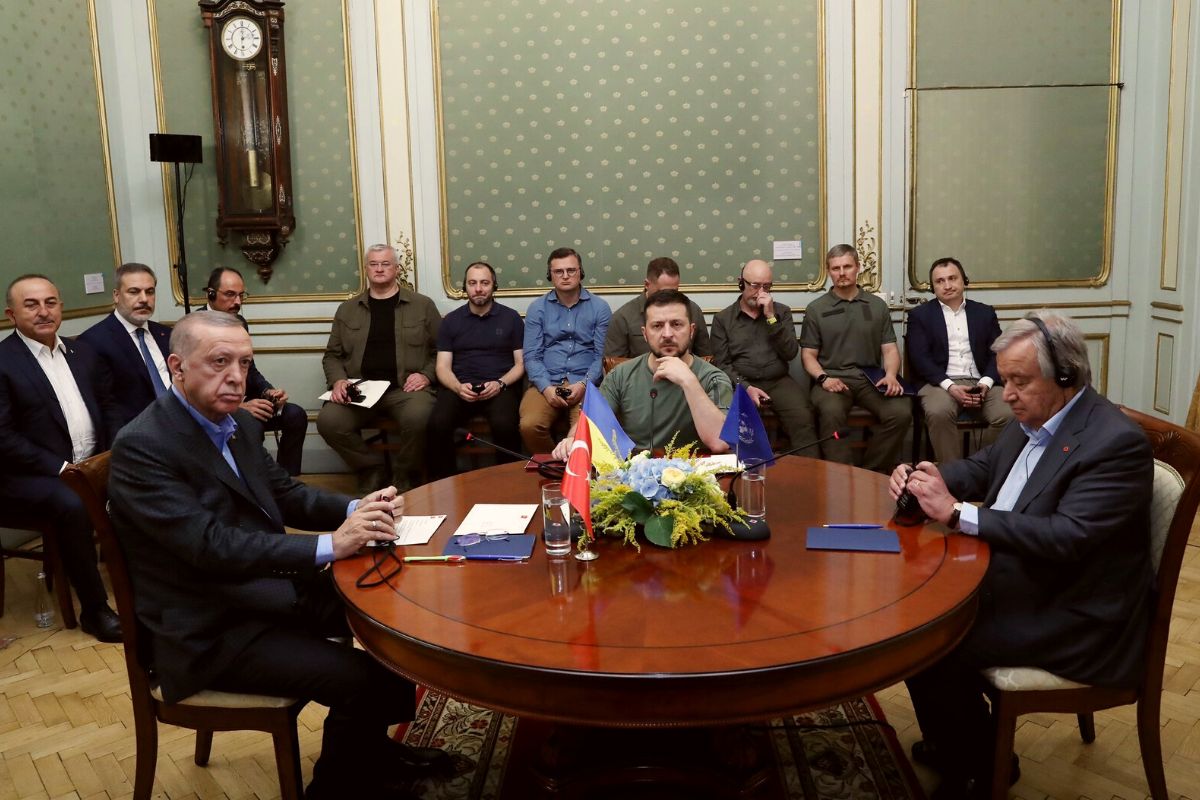Russia offers rare earth metals to US
Russia on Monday said that it is ready to strike a deal with the United States on rare earth metals.
Condemning the Kremlin for what he called “nuclear blackmail”, President Zelenaskyy demanded that Russian troops leave the plant.

Image source Twitter (@trpresidency)
The President of Ukraine, Volodymr Zelenskyi, his Turkish counterpart, Recep Tayyip Erdogan, and the United Nations chief initiated the first effort last Thursday to hold talks over the nuclear plant and grain exports. This was the first high-powered effort in the past six months to defuse the overwhelming tension and ratchet down the war. Mr Erdogan said he would follow up the discussions with Russia’s President, Vladimir Putin, not the least because most of the topics discussed would require the Kremlin’s concurrence. With the meetings held at such a high level ~ it was the first visit to Ukraine by Erdogan since the war began, and the second by the UN Secretary-General, Antonio Guterres ~ some had expected a breakthrough, at least on specific issues. But none was apparent.
Meeting in the western city of Lviv, far from the frontlines, the leaders discussed the exchange of PoWS and arranging for UN atomic energy experts to visit and help secure Europe’s biggest nuclear power plant, which is at the centre of fierce fighting that has raised fears of a catastrophe. Erdogan has positioned himself as a go-between in efforts to stop the fighting. Though Turkey is a member of Nato, its torpid economy is reliant on Russia for trade, and it has tried to steer a middle course between Russia and Ukraine. Erdogan urged the international community after the talks not to abandon diplomatic efforts to end the war that has killed tens of thousands and forced more than ten million Ukrainians from their homes.
Advertisement
Turkey’s President has iterated that the government in Ankara is willing to act as “mediator and facilitator”. And then the punchline, “I remain convinced that the war will end at the negotiating table.” The comity of nations must hope that it will. One major issue that figured in the Lviv talks was the Zaporizhzhia nuclear plant in southern Ukraine. Moscow and Kiev have accused each other of shelling the complex. Condemning the Kremlin for what he called “nuclear blackmail”, President Zelenaskyy demanded that Russian troops leave the plant.
Advertisement
More crucially, it is imperative that a team from the International Atomic Energy (IAEA) is allowed in. “The area needs to be demilitarized, and we must tell it as it is. Any potential damage in Zaporizhzhia is suicide,” the UN Secretary-General told the media. Erdogan also expressed concern over the fighting around the plant, saying: “We don’t want to experience another Chernobyl.” Zelenskyy and the UN chief agreed on Thursday on arrangements for an IAEA mission to the plant. But it was not immediately clear whether the Kremlin would agree to the terms. As regards a troop pull-out, Moscow is worried that that would leave the nuclear plant “vulnerable”.
Advertisement